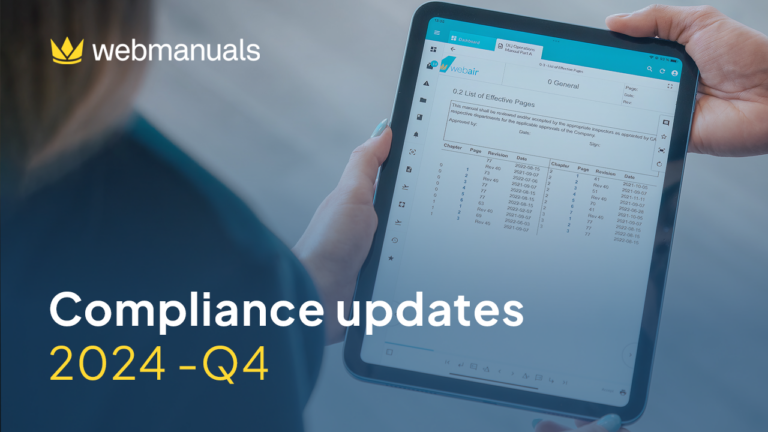airBaltic first introduced Web Manuals’ document management system in 2015 after the team recognized the need for an electronic system to create and update its flight manuals. Prior to then, the airline processed documents manually which took a substantial amount of time and effort.
Initially, Web Manuals was implemented exclusively to serve the needs of the airBaltic flight operations department. The transfer to an electronic document management system allowed the department to get rid of considerable amounts of printed manuals that had previously been physically carried onboard aircraft and distributed to numerous offices.
However, other departments were quick to see the benefits Web Manuals could bring. Alla Grante, Flight Operations Support Manager at airBaltic explains: “We soon realized that digitalization of documents could be introduced in other departments which would further enhance performance.”
“This led to the process of documentation revision, review and approval completely changing across the board. Not only was it simplified but it enabled colleagues in various areas of the organization to take more control and transparency of their respective documents. Several non-documentation processes that had previously used paper forms and manual signatures were digitalized using Web Manuals. The necessity of physical documentation had almost disappeared within the company, which substantially reduced workload for certain positions. Some work is still to be done, but we are getting there.”
Uplifting operational efficiency
Most importantly, the digitalization of documentation allowed for immediate distribution, greatly improving operational efficiency across the company. airBaltic is now able to quickly provide all types of documents for flight crew, cabin crew, flight operations, maintenance and technical teams no matter where they are based. This is especially beneficial when urgent updates are required or any mistakes in a document need to be rectified, all of which can be done simply and efficiently using Web Manuals.
The removal of heavy manuals from aircraft also meant less weight being taken onboard, resulting in reduced fuel consumed and lower fuel costs. In addition to increased efficiency, this also brought benefits for airBaltic financially and allowed the airline to become more sustainable by using less paper and producing less CO² for every single one of its flights.
The implementation of a centralized system for storing, editing and distributing documents at airBaltic has dramatically improved efficiency across the company, has provided the carrier with cost savings, and has taken important steps in helping to improve sustainability within the company.




